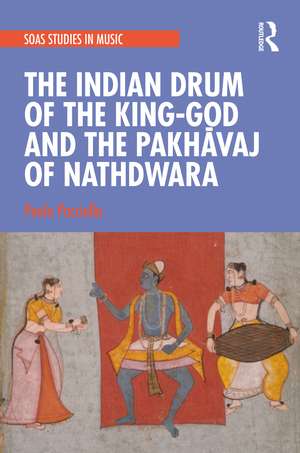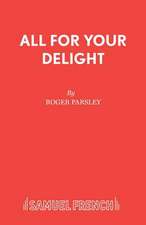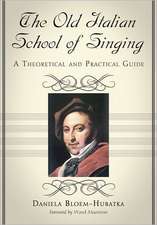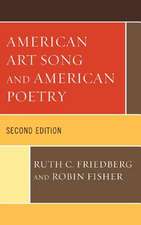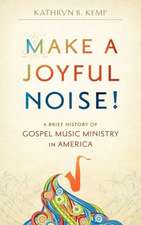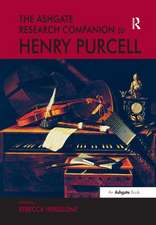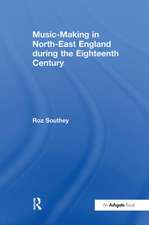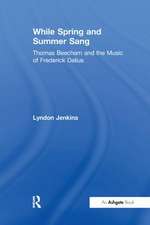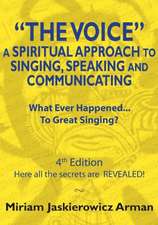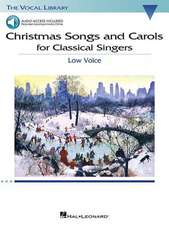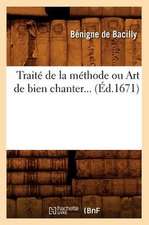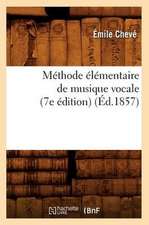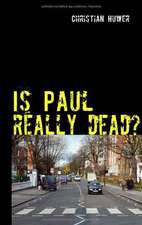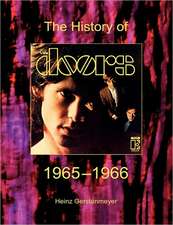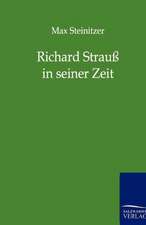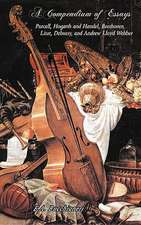The Indian Drum of the King-God and the Pakhāvaj of Nathdwara: SOAS Studies in Music
Autor Paolo Pacciollaen Limba Engleză Hardback – 20 mai 2020
| Toate formatele și edițiile | Preț | Express |
|---|---|---|
| Paperback (1) | 383.12 lei 6-8 săpt. | |
| Taylor & Francis – 13 dec 2021 | 383.12 lei 6-8 săpt. | |
| Hardback (1) | 1000.76 lei 6-8 săpt. | |
| Taylor & Francis – 20 mai 2020 | 1000.76 lei 6-8 săpt. |
Din seria SOAS Studies in Music
-
 Preț: 341.09 lei
Preț: 341.09 lei - 9%
 Preț: 867.47 lei
Preț: 867.47 lei - 9%
 Preț: 936.97 lei
Preț: 936.97 lei -
 Preț: 310.03 lei
Preț: 310.03 lei -
 Preț: 310.03 lei
Preț: 310.03 lei - 9%
 Preț: 866.80 lei
Preț: 866.80 lei -
 Preț: 310.75 lei
Preț: 310.75 lei -
 Preț: 311.41 lei
Preț: 311.41 lei -
 Preț: 341.57 lei
Preț: 341.57 lei -
 Preț: 297.50 lei
Preț: 297.50 lei -
 Preț: 377.82 lei
Preț: 377.82 lei - 30%
 Preț: 768.69 lei
Preț: 768.69 lei - 18%
 Preț: 1121.01 lei
Preț: 1121.01 lei - 18%
 Preț: 1063.31 lei
Preț: 1063.31 lei - 31%
 Preț: 766.26 lei
Preț: 766.26 lei - 31%
 Preț: 765.43 lei
Preț: 765.43 lei - 18%
 Preț: 1060.25 lei
Preț: 1060.25 lei - 18%
 Preț: 1058.19 lei
Preț: 1058.19 lei - 18%
 Preț: 1060.11 lei
Preț: 1060.11 lei - 18%
 Preț: 1063.41 lei
Preț: 1063.41 lei - 28%
 Preț: 826.84 lei
Preț: 826.84 lei - 28%
 Preț: 823.17 lei
Preț: 823.17 lei - 18%
 Preț: 1053.16 lei
Preț: 1053.16 lei - 18%
 Preț: 239.96 lei
Preț: 239.96 lei - 18%
 Preț: 1050.09 lei
Preț: 1050.09 lei -
 Preț: 375.50 lei
Preț: 375.50 lei - 31%
 Preț: 766.24 lei
Preț: 766.24 lei - 26%
 Preț: 822.34 lei
Preț: 822.34 lei - 18%
 Preț: 1057.89 lei
Preț: 1057.89 lei - 26%
 Preț: 765.43 lei
Preț: 765.43 lei - 26%
 Preț: 765.43 lei
Preț: 765.43 lei - 25%
 Preț: 769.10 lei
Preț: 769.10 lei - 18%
 Preț: 1061.93 lei
Preț: 1061.93 lei - 30%
 Preț: 768.69 lei
Preț: 768.69 lei - 18%
 Preț: 1055.84 lei
Preț: 1055.84 lei - 28%
 Preț: 734.25 lei
Preț: 734.25 lei - 18%
 Preț: 1108.37 lei
Preț: 1108.37 lei - 9%
 Preț: 1039.66 lei
Preț: 1039.66 lei - 18%
 Preț: 1051.55 lei
Preț: 1051.55 lei - 25%
 Preț: 767.88 lei
Preț: 767.88 lei - 28%
 Preț: 825.21 lei
Preț: 825.21 lei - 18%
 Preț: 1008.97 lei
Preț: 1008.97 lei - 26%
 Preț: 765.01 lei
Preț: 765.01 lei - 31%
 Preț: 764.36 lei
Preț: 764.36 lei - 18%
 Preț: 1005.04 lei
Preț: 1005.04 lei - 31%
 Preț: 765.04 lei
Preț: 765.04 lei - 18%
 Preț: 1068.15 lei
Preț: 1068.15 lei - 31%
 Preț: 763.93 lei
Preț: 763.93 lei
Preț: 1000.76 lei
Preț vechi: 1220.44 lei
-18% Nou
Puncte Express: 1501
Preț estimativ în valută:
191.49€ • 208.66$ • 161.36£
191.49€ • 208.66$ • 161.36£
Carte tipărită la comandă
Livrare economică 23 aprilie-07 mai
Preluare comenzi: 021 569.72.76
Specificații
ISBN-13: 9780367370237
ISBN-10: 0367370239
Pagini: 206
Ilustrații: 56
Dimensiuni: 156 x 234 x 13 mm
Greutate: 0.47 kg
Ediția:1
Editura: Taylor & Francis
Colecția Routledge
Seria SOAS Studies in Music
Locul publicării:Oxford, United Kingdom
ISBN-10: 0367370239
Pagini: 206
Ilustrații: 56
Dimensiuni: 156 x 234 x 13 mm
Greutate: 0.47 kg
Ediția:1
Editura: Taylor & Francis
Colecția Routledge
Seria SOAS Studies in Music
Locul publicării:Oxford, United Kingdom
Public țintă
PostgraduateCuprins
Chapter One. Introduction
1.1 Background
1.2 Fieldwork among pakhāvajīs
1.3 Ancient courts: the roots of a musical tradition
1.4 Nathdwara, a contemporary reign of the King-God and his court
1.5 A multidimensional approach
Chapter Two. A drum between courts and temples
2.1 Music, religions, the sacred and the secular in India
2.2 Paramparās and gharānās according to contemporary pakhāvaj players
Chapter Three. The pakhāvaj in contemporary India and its religious and mythological heritage according to pakhāvaj players
3.1 The pakhāvaj
3.2 The pakhāvaj and the pakhāvaj players in the classical music scene of contemporary India
3.3 The pakhāvaj heritage according to its players
Chapter Four. Auspicious Drumming
4.1 Auspiciousness
4.2 Auspiciousness and its roots
4.3 The auspicious arts in literature and other textual sources
4.4 Rain on the lotus pond
4.5 Gaja-Lakṣmī
4.6 The cloud-drum
4.7 Rain of blessings
Chapter Five. The drum of the King-God: from mṛdaṅga to pakhāvaj
5.1 The socio-historical context of the emergence of the mṛdaṅga as major courtly drum
5.2 The sound of the mṛdaṅga in the aestheticised life of the courts
5.3 Śiva, the magnification of the warrior king
5.4 The drum giving voice to death
5.5 Viṣṇu- Kṛṣṇa, the righteous king and the bhakti cults
Chapter Six. From mṛdaṅga to pakhāvaj
6.1 The multiplication of mṛdaṅgas and the emergence of the pakhāvaj
6.2 From mṛdaṅga to pakhāvaj and vice versa: making the deśī mārga and the mārga deśī
Chapter Seven. The Nathdwara gharānā: playing the pakhāvaj for Nāthjī
7.1 Vallabhācarya and the Puṣṭimārg
7.2 Śrī Nāthji, the King-God, and his worship
7.3 The role of music and aesthetics in the cult of Puṣṭimārg
7.4 The family of Purushottam Das
7.5 Pandit Dalchand Sharma and my research
Chapter Eight. The repertoire
8.1 The pakhāvaj: facets of its language and playing styles
8.2 Compositional types
8.3 Parans as structures based on geometrical figures
8.4 Parans as prayers
8.5 Parans, images and poetry
8.6 A knowledgeable king of the 20th century and his parans
8.7 The torrent and the rain
Chapter Nine. The solo pakhāvaj recital
9.1 The structure of the solo recital
9.2 Lotuses, garlands of flowers and the solo pakhāvaj
9.3 The solo recital of the Nathdwara gharānā
9.4 Stuti paran
9.5 Madhya lay ka prastār
9.6 Dhenanaka bāj
9.7 Paran
9.8 Lay tāl torneka kata
9.9 Chandkari
9.10 Thapiyā ka bāj
9.11 Relā
Conclusion
Glossary
Bibliography
Solo Pakhāvaj Recordings
1.1 Background
1.2 Fieldwork among pakhāvajīs
1.3 Ancient courts: the roots of a musical tradition
1.4 Nathdwara, a contemporary reign of the King-God and his court
1.5 A multidimensional approach
Chapter Two. A drum between courts and temples
2.1 Music, religions, the sacred and the secular in India
2.2 Paramparās and gharānās according to contemporary pakhāvaj players
Chapter Three. The pakhāvaj in contemporary India and its religious and mythological heritage according to pakhāvaj players
3.1 The pakhāvaj
3.2 The pakhāvaj and the pakhāvaj players in the classical music scene of contemporary India
3.3 The pakhāvaj heritage according to its players
Chapter Four. Auspicious Drumming
4.1 Auspiciousness
4.2 Auspiciousness and its roots
4.3 The auspicious arts in literature and other textual sources
4.4 Rain on the lotus pond
4.5 Gaja-Lakṣmī
4.6 The cloud-drum
4.7 Rain of blessings
Chapter Five. The drum of the King-God: from mṛdaṅga to pakhāvaj
5.1 The socio-historical context of the emergence of the mṛdaṅga as major courtly drum
5.2 The sound of the mṛdaṅga in the aestheticised life of the courts
5.3 Śiva, the magnification of the warrior king
5.4 The drum giving voice to death
5.5 Viṣṇu- Kṛṣṇa, the righteous king and the bhakti cults
Chapter Six. From mṛdaṅga to pakhāvaj
6.1 The multiplication of mṛdaṅgas and the emergence of the pakhāvaj
6.2 From mṛdaṅga to pakhāvaj and vice versa: making the deśī mārga and the mārga deśī
Chapter Seven. The Nathdwara gharānā: playing the pakhāvaj for Nāthjī
7.1 Vallabhācarya and the Puṣṭimārg
7.2 Śrī Nāthji, the King-God, and his worship
7.3 The role of music and aesthetics in the cult of Puṣṭimārg
7.4 The family of Purushottam Das
7.5 Pandit Dalchand Sharma and my research
Chapter Eight. The repertoire
8.1 The pakhāvaj: facets of its language and playing styles
8.2 Compositional types
8.3 Parans as structures based on geometrical figures
8.4 Parans as prayers
8.5 Parans, images and poetry
8.6 A knowledgeable king of the 20th century and his parans
8.7 The torrent and the rain
Chapter Nine. The solo pakhāvaj recital
9.1 The structure of the solo recital
9.2 Lotuses, garlands of flowers and the solo pakhāvaj
9.3 The solo recital of the Nathdwara gharānā
9.4 Stuti paran
9.5 Madhya lay ka prastār
9.6 Dhenanaka bāj
9.7 Paran
9.8 Lay tāl torneka kata
9.9 Chandkari
9.10 Thapiyā ka bāj
9.11 Relā
Conclusion
Glossary
Bibliography
Solo Pakhāvaj Recordings
Notă biografică
Paolo Pacciolla is Tagore Fellow affiliated with the Indira Gandhi National Centre for the Arts of New Delhi, where he is conducting research on ritual drumming in Kerala. His main ethnographic focus is on music in India, and his research interests include Ethnomusicology, Organology, Iconography of Music, Indology and Religious Studies.
Descriere
The book studies the evolution of the ancient drum mṛdaṅga into the pakhāvaj crossing more than two thousand years of history.
